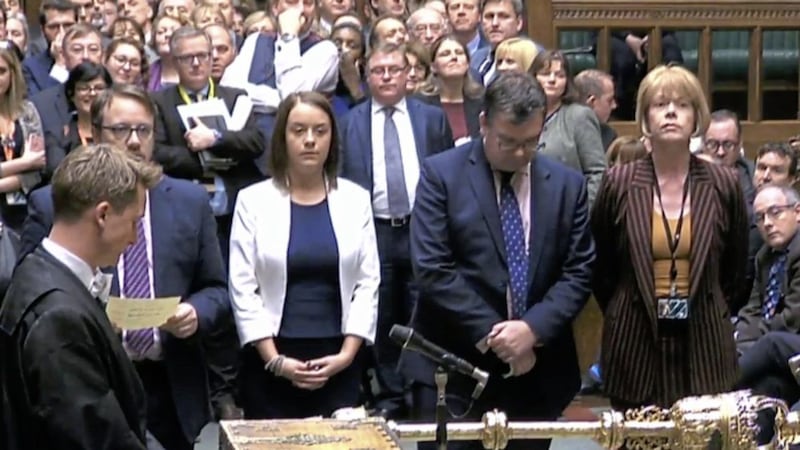The ruptures, the differences and the tensions that have partially defined the relationships on the islands of Britain and Ireland have been brought to full clarity by Brexit.
It is like rocks on the shore that have become visible only after the storm has blown the sand away. Politics has often chosen to ignore those rocks or to chart a way around them.
Now that Brexit has revealed the presence and the depth of the rocks it becomes impossible to cover them over again or to proceed as if they were not there. The blizzard of articles and the cacophony of commentary makes it easy to believe that these islands are in a ‘state of chassis’. But despite all the confusion and the tension it is still possible to remain optimistic about the future and believe that Heaney’s further shore is reachable from here. But that further shore will look very different to where we are now.
In political terms that further shore is the resolution and the settlement of the identities of the peoples of these islands. That is how fundamental and transformative Brexit is. Its consequence and its resolution goes far beyond the sway of economics and commerce. Of course there is a torrent of issues and disagreements between here and a calmer, more settled place. But no matter what happens in the coming weeks and months, no matter what happens in Westminster next week, no matter that Theresa May stays or goes, that there is a deal or no deal, an election or another referendum, none of those incidentals will change the need to address and resolve those identities and their relationships with one another and with Europe.
Take the situation on this island. It is becoming tiresome to hear people tell us that they are not against Irish unity but that it is not yet time to begin the debate. To hear some argue that the unity debate should only take place thirty or more years in the future is like whistling past a graveyard. The whistling removes neither the graves nor the fear. Much better to face the fears and the ghosts so as to discover that ghosts only exist in the imagination.
The debate about Irish and or British, unionist or nationalist, will be a long and complex one. Brexit has not alone resurrected that debate but has pushed it to the top of the agenda. To continue to deny its currency and its import and to argue its postponement is to whistle in the wind.
On the other island, Scotland is holding its ‘whist’ until it thinks the time is right to go looking for a second referendum on independence. The Scottish National Party are naturally cautious after an initial defeat but the threat, never mind the reality, of being removed from Europe against its will and the increasing impression of being subject to the nationalistic requirements of English Tories stirs the old passions and may convert the small number still required to win an independence referendum.
It is true that a softer Brexit that is presently gaining some traction might reduce tensions in Ireland and Scotland in the short term but would inflame the divisions in England. A country that has avoided internal strife and violent conflict for more than four hundred years is now riven and convulsed. Like all powerful and rich countries it has a propensity to be self absorbed and self seeking. The desire to re-establish its independence and greatness, at least in its imagination, is creating such deep fracturing that something will have to break or be broken cleanly before it can be reset to allow for healing.
Apart from the political theatre that will dominate the next few weeks, England may be less adept at recognising and absorbing the identity crisis that is at the heart of Brexit. It is more difficult to define Englishness than it is to define Irish or Scottish. It has less exposure and experience of internal divisions and it may have to undergo a major political realignment before it can come to terms with the constitutional crisis in which it is now embroiled. For that to happen may require a strong spine of English superiority and pomposity that has been visible in English politics to be broken.
Strangely, I think that has already begun and I have belief that England, at its best, will rise to the occasion.









